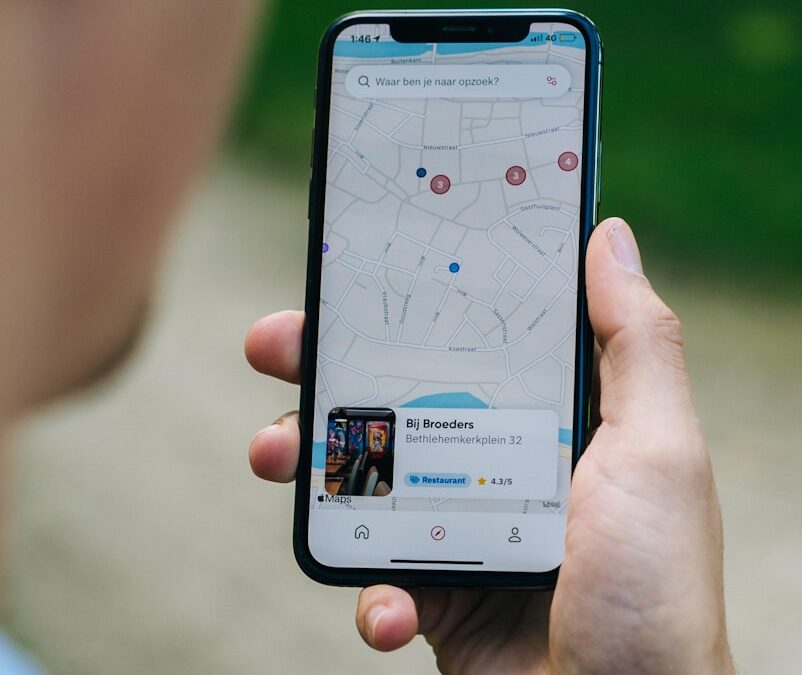From Camels to Connected Cars: Revolutionizing Mobility in the Kingdom
Smart Mobility in Saudi Arabia is dramatically reshaping how transportation systems function across the Kingdom, marking a significant leap from traditional methods to futuristic innovations.
Revolutionizing Public Transport with AI
Artificial Intelligence (AI) is at the forefront of transforming public transportation in Saudi Arabia. AI-driven solutions are being integrated into public buses, trains, and metros to optimize routes, reduce wait times, and increase efficiency. For example, Riyadh’s King Abdulaziz Public Transport Project employs AI to manage bus and train schedules, accommodating real-time traffic conditions to enhance commuter experience. This integration of AI not only improves operational efficiency but also significantly cuts down on fuel consumption and carbon emissions, supporting the Kingdom’s Vision 2030 environmental goals.
Blockchain for Secure and Efficient Transportation Operations
The use of Blockchain technology in Saudi Arabia’s transportation sector is set to revolutionize how transactions and operations are managed. By ensuring transparency and security, blockchain systems can manage everything from ticket purchases to maintenance records without risk of data breaches or fraud. This technology fosters trust among users and streamlines operations, making public transport more appealing and reliable for residents and tourists alike.
The Role of Connected Cars in Urban Mobility
Connected cars are becoming an integral part of Saudi Arabia’s vision for smart urban mobility. These vehicles, equipped with Internet connectivity and sensors, communicate with each other and traffic management systems to mitigate congestion and enhance safety. The introduction of connected cars is expected to reduce traffic accidents and congestion in major cities like Jeddah and Riyadh, paving the way for a safer and more efficient urban environment.
Executive Coaching for Leadership in Transportation Innovation
As Saudi Arabia advances its transportation infrastructure, executive coaching has become crucial in cultivating the next generation of leaders equipped to handle this technological evolution. Coaches work with transportation executives to develop skills necessary for managing large-scale smart mobility projects that integrate AI, blockchain, and IoT technologies. Through personalized training and development programs, leaders are prepared to face challenges and drive innovation within the sector.
Change Management Strategies in Smart Mobility Adoption
Implementing smart mobility solutions involves significant changes in infrastructure and human resources. Effective change management strategies are therefore essential to ensure a smooth transition. This involves training staff to handle new technologies, revising policies to support innovation, and maintaining open communication channels throughout the organization to facilitate adjustments and foster acceptance of new practices.
Enhancing Communication in Transportation Projects
Effective communication is pivotal in the successful rollout of smart mobility projects. By employing clear, transparent communication strategies, project managers can ensure that all stakeholders, from government officials to local communities, understand the benefits and potential challenges of smart transportation initiatives. Regular updates, meetings, and workshops can help sustain engagement and support throughout the implementation phases, ensuring that the transition to smart mobility is as seamless as possible.
Building Infrastructure for Future Mobility
To accommodate the new wave of smart transportation options, significant infrastructure upgrades are required. Saudi Arabia is investing heavily in developing robust road networks, advanced public transportation terminals, and high-tech traffic management systems. These developments are crucial for the seamless integration of connected cars and AI-powered buses into daily commuting practices.
Sustainability and Smart Mobility
One of the key goals of introducing smart mobility in Saudi Arabia is to enhance sustainability in transportation. This includes reducing carbon emissions, promoting electric vehicles, and optimizing energy use in public transport. These initiatives are aligned with global environmental standards and contribute to the Kingdom’s long-term sustainability objectives outlined in Vision 2030.
Nurturing Innovation Through Collaboration
Fostering a collaborative environment is essential for the advancement of smart mobility technologies in Saudi Arabia. This involves partnerships between government entities, technology providers, and academic institutions to research and develop new transportation solutions. Such collaborations can accelerate the pace of innovation and provide a broad range of benefits to the public and the environment.
#SmartMobility, #SaudiArabia, #ConnectedCars, #ArtificialIntelligence, #Blockchain, #ChangeManagement, #LeadershipDevelopment, #TransportationInnovation, #Vision2030











